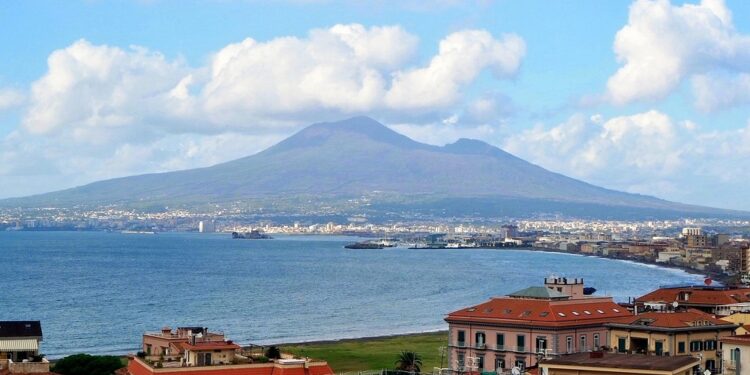
Vesuvius Day
The eruption of a volcano can be impressive, but it’s also one of the most terrifying natural occurrences on the planet. During a volcanic eruption, lava and gas are violently expelled from the volcano. The most dangerous version of this eruption is when a “Glowing Avalanche” occurs.
This is when hot magma flows down the sides of the volcano at high temperatures and speeds. Of course, earthquakes and the raining down of volcanic material can also occur. This is what happened at Mount Vesuvius in 79 AD. This event resulted in a massive loss of life and is the reason why we now observe Vesuvius Day on August 24th every year.
The History of Vesuvius Day
Located in the Gulf of Naples, Italy, Mount Vesuvius is a stratovolcano that is considered to be one of the most dangerous volcanoes in the world due to its history of violent eruptions. Of course, its most impressive and famous eruption occurred in 79 AD.
This event lasted for approximately two days and ended up burying the cities of Herculaneum and Pompeii in ash and pumice. The eruption is believed to have been so intense that it caused a pyroclastic surge, which sent a current of hot gas and volcanic matter toward these cities at an alarmingly quick pace.
This resulted in the cities being engulfed and thousands of people being killed. As far as this holiday goes, it was first celebrated in 1995 in Italy to commemorate the 1,916th anniversary of the eruption of this volcano. It was seen as a way to pay tribute to those who suffered and died in this eruption and as a reminder to us all of the importance of being prepared for natural disasters.
On this day, as well as every day since, people visit the archaeological sites of Herculaneum and Pompeii to light candles in memory of those who died and to participate in events and ceremonies that honor the culture and history of the region.
Observing Vesuvius Day
This is a holiday that encourages people to remember the eruption of Mount Vesuvius and the destruction of Herculaneum and Pompeii. Official events happen at these sites, but people all around the world can take the time to think about this event and those who may have suffered.
People can also spread the word about this holiday across the World Wide Web using the hashtag #VesuviusDay. And finally, it’s a day that people can use as a reminder to prepare themselves for the natural disasters that are prevalent in the areas where they live.








